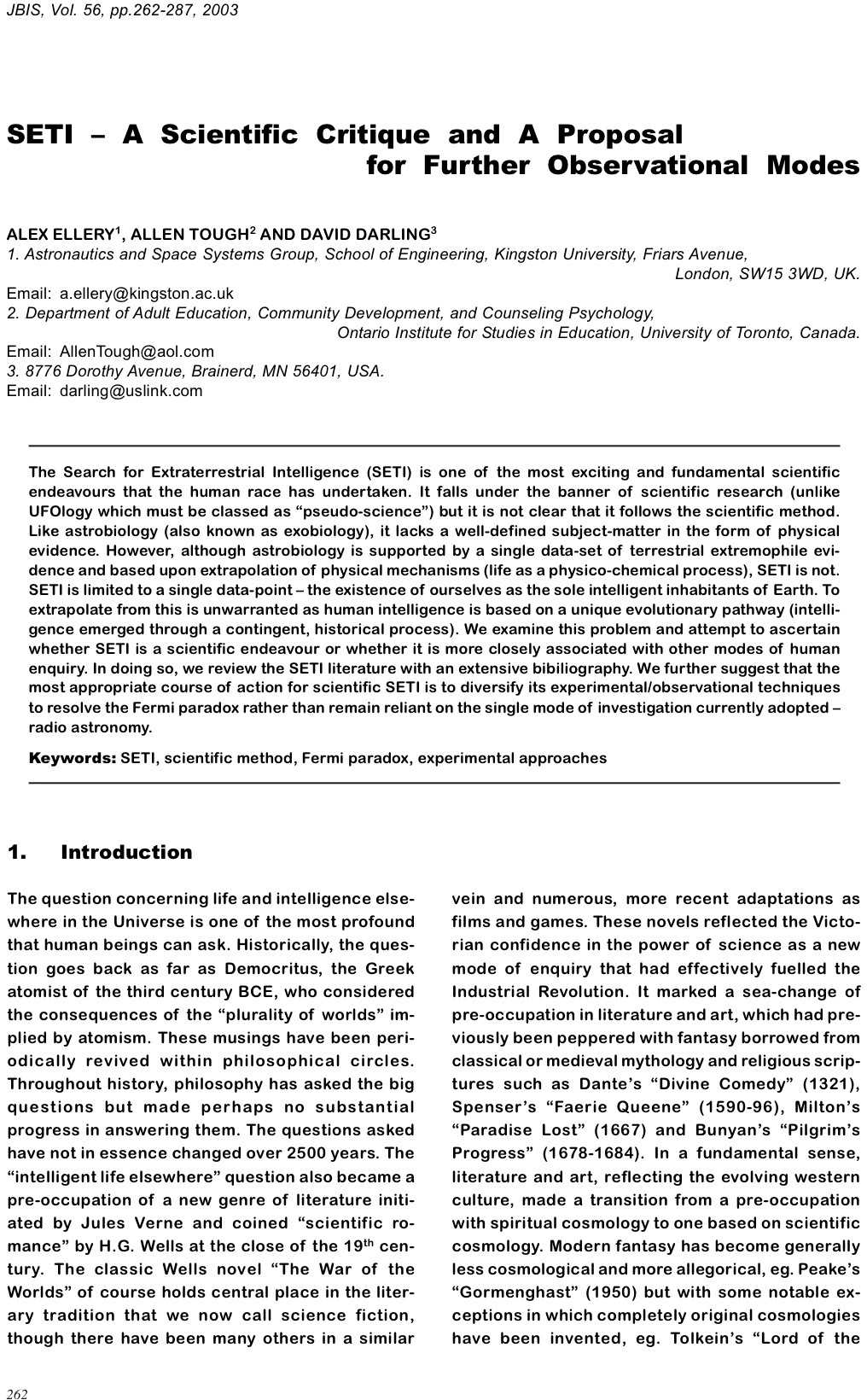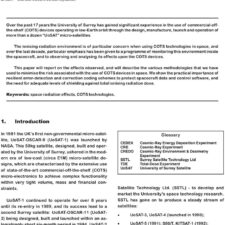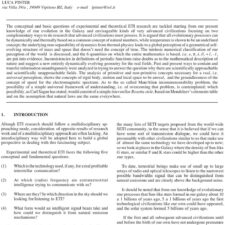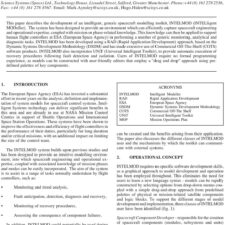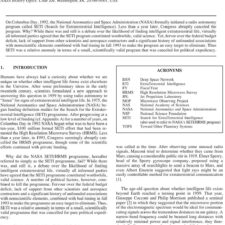SETI – A Scientific Critique and a Proposal for Further Observational Modes
£5.00
A. Ellery; A. Tough; D. Darling (2003), JBIS, 56, 262-287
Refcode: 2003.56.262
Abstract:
The Search for Extraterrestrial Intelligence (SETI) is one of the most exciting and fundamental scientific endeavours that the human race has undertaken. It falls under the banner of scientific research (unlike UFOlogy which must be classed as “pseudo-science”) but it is not clear that it follows the scientific method. Like astrobiology (also known as exobiology), it lacks a well-defined subject-matter in the form of physical evidence. However, although astrobiology is supported by a single data-set of terrestrial extremophile evidence and based upon extrapolation of physical mechanisms (life as a physico-chemical process), SETI is not. SETI is limited to a single data-point – the existence of ourselves as the sole intelligent inhabitants of Earth. To extrapolate from this is unwarranted as human intelligence is based on a unique evolutionary pathway (intelligence emerged through a contingent, historical process). We examine this problem and attempt to ascertain whether SETI is a scientific endeavour or whether it is more closely associated with other modes of human enquiry. In doing so, we review the SETI literature with an extensive bibliography. We further suggest that the most appropriate course of action for scientific SETI is to diversify its experimental/observational techniques to resolve the Fermi paradox rather than remain reliant on the single mode of investigation currently adopted – radio astronomy.

